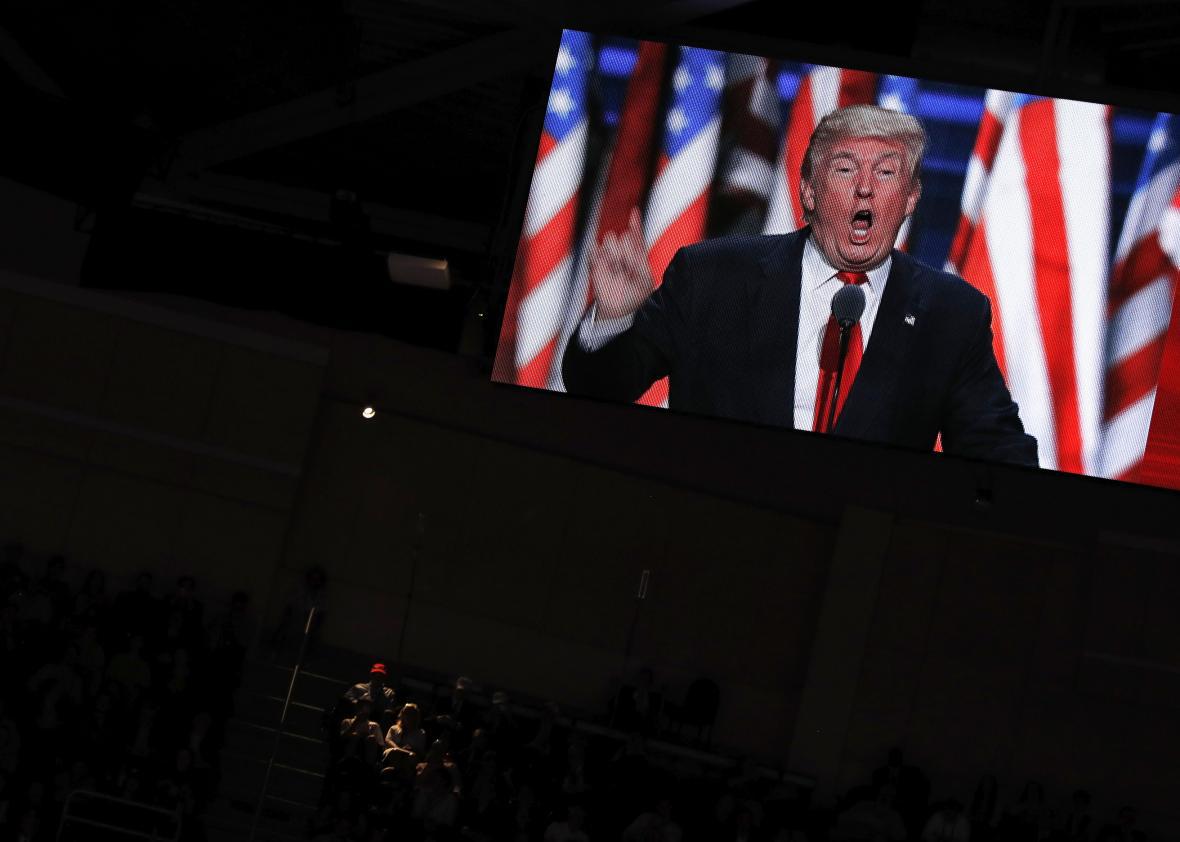Donald Trump delivered a long, dark, and gory convention speech on Thursday night. He bellowed warnings about murderous ISIS terrorists and immigrants, about crime waves sweeping American cities and police officers being gunned down. He talked about Hillary Clinton’s email mendacity (of course) and described a world swirling into chaos because of her incompetence (of course). He painted himself as the only hope for fixing a “rigged” political system.
He spent relatively little time, however, talking about the economy. In the longest convention address by a party nominee in the modern era, the subjects of trade, taxes, and jobs took up maybe 10 minutes or so—in the leaked draft of his remarks that circulated beforehand, economic concerns commanded about seven out of 64 pages. He sprinkled in some stats about poverty to reinforce the theme of America in decay. And while he offered his standard spiel about negotiating better, making smarter trade deals, and getting tough with China—calling it a “signature issue” of his campaign—the material was utterly overshadowed by the apocalyptic talk of mortal threats at home and abroad.
The fact that jobs got short shrift Thursday was no coincidence. It’s a reminder that his campaign is fundamentally not about the economy—it’s about white working-class nationalism. Trump inflames anxieties and resentments and offers himself as protector and avenger. Bucking his party’s free-trade consensus has merely been one useful way to accomplish that. Early in his campaign, it allowed him to signal to blue-collar conservatives that he cared about their (often very real) troubles. But just as importantly, railing against China, NAFTA, and corrupt trade negotiators let him enforce the us-vs.-them dynamic essential to any good nationalist appeal. Yes, Trump’s opinions about trade deals are probably sincere—he’s been ranting about America getting beat at the negotiating table since the 1980s. But why wax on about economic data when there are even more visceral fears to appeal to?
Even as Trump makes the bold claim that his position on trade will single-handedly win over Bernie Sanders voters, it almost comes off as a throwaway—though the populist similarities between the Trump and Sanders campaign have been pointed out, most of the likeness ends there. Trump now spends his time on villains his base truly lies awake worrying about: cop killers. Terrorists. Immigrants who murder innocent Americans. And so his economic message has become revealed for what it is: the side salad to a main course of bullets and blood.
